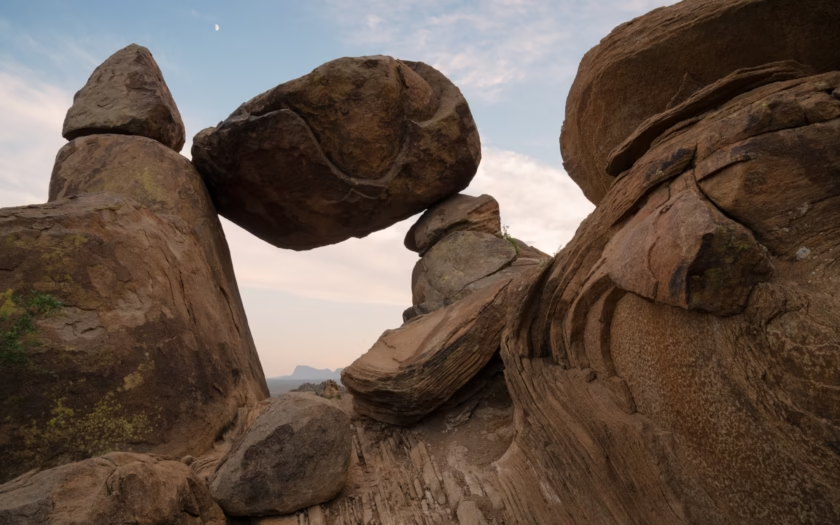Exploring the Lone Star State: Fast Facts and Tips
Fast Facts:
— Statehood: December 29, 1845 (28th state)
— Capital: Austin
— Time Zone: Central United States (GMT-5 Daylight Savings/GMT-6 Standard)
— Main Airports:
— Dallas/Fort Worth International (DFW): Second-busiest airport in the U.S.
— Houston George Bush Intercontinental (IAH): Hub for United Airlines
— Austin-Bergstrom International (AUS): Features live music performances in the terminal
— San Antonio International (SAT): Easy access to Mexico
— El Paso International (ELP): Most convenient airport to Big Bend National Park (315 miles away)
Fun Fact: Texas, measuring 268,597 square miles, is larger than any country in Europe (excluding Russia and Turkey, which straddle Europe and Asia).
Why You Should Visit Texas:
- Vast landscapes with big skies and expansive parks
- Renowned barbecue and Tex-Mex cuisine (don’t miss breakfast tacos!)
- Vibrant live music scene in Austin
- World-class birding in South Texas
- Iconic cowboy culture
Best Time to Visit Texas:
- Spring (March-April): Ideal for wildflower viewing and outdoor festivals. Highlights include the South by Southwest Festival in Austin, San Antonio’s Fiesta, and the Round Top Antiques Fair.
- Summer (June-August): Hot temperatures, perfect for beach trips to South Padre Island or tubing in rivers like the Guadalupe and Frio.
- Autumn (September-November): Cooler temperatures are great for festivals like Austin City Limits Music Festival and the State Fair of Texas. Fall colors in Lost Maples State Natural Area are a must-see.
- Winter (December-February)**: Mild weather is perfect for holiday events like San Antonio’s Riverwalk lights and Galveston’s Dickens on the Strand.
Cities:
- Austin: Known for live music, barbecue, and Barton Springs Pool.
- San Antonio: Visit the Alamo, River Walk, and historic Missions.
- -Dallas: Home to the Dallas Cowboys, vibrant Deep Ellum, and an impressive arts scene.
- Fort Worth: Famous for cowboy culture and the Stockyards District.
- Houston: Offers cultural attractions, NASA’s Johnson Space Center, and diverse dining options.
- El Paso: Explore Tex-Mex culture and desert landscapes.
Parks and Smaller Cities:
- The Hill Country: Fredericksburg’s indie boutiques and wineries, Bandera’s cowboy culture, and Luckenbach, Texas.
- Big Bend: Enjoy Big Bend National Park, Big Bend Ranch State Park, and stargazing at McDonald Observatory.
- Texas Coast: Padre Island’s beaches and Galveston Island’s Victorian charm.
- Panhandle: Palo Duro Canyon’s impressive landscapes.
Getting Around Texas:
- By Plane: Major airports include DFW, IAH, and AUS. San Antonio and El Paso also offer convenient connections.
- By Bus: Vonlane and RedCoach provide luxury services; Valley Metro serves the Rio Grande Valley.
- By Train: Amtrak’s Texas Eagle and Sunset Limited routes.
- By Car: Major interstates include I-10, I-20, I-35, I-45, and I-37. Scenic drive FM 170 along the Rio Grande is notable.
- In Town: Cities offer bus services and bike share systems. Dallas has DART rail; Austin has CapMetro; Houston has METRORail; El Paso has a Streetcar.
Know Before You Go:
- Cultural History: Indigenous tribes, Spanish, Mexican, and American influences shape Texas’ rich history.
- LGBTQ+: Texas cities like Austin, Dallas, Fort Worth, and San Antonio are relatively LGBTQ+-friendly despite broader state politics.
Sustainable Travel Tips:
- Stick to designated trails and roads
- Support dark sky initiatives and reef-safe products
- Engage with local stewardship campaigns
— Opt for LEED-certified accommodations and locally sourced food
What to Read:
- Empire of the Summer Moon** by S.C. Gwynne: Chronicles the history of the Comanche wars and the American West.
- Forget the Alamo** by Bryan Burrough, Chris Tomlinson, and Jason Stanford: Explores the myths and realities surrounding the Texas Revolution.
- Valley of Shadows** by Rudy Ruiz: A novel set in 19th-century West Texas with themes of border tension and magical realism.
